How to Use Pesticides Safely and Correctly

Pesticides are formulated to control or kill structural as well as garden pests. They are sold under different brands or trade names and can either be wettable powders, liquids, fogs, fungicides, insecticides, rodenticides, larvicides, termiticides, gels, foams, granules, baits, etc…
The list seems endless but while pesticides offer much help caution should be taken when handling them, some rules or laws govern pesticide use and we must adhere to and respect those laws to ensure the safety of Humans, Pets, Wildlife, and Beneficial insects.
Mishandling of these pesticides can contaminate our environment, including water bodies such as groundwater, lakes, rivers, streams, ponds, and even air population. While many of these pesticides can be purchased off the shelf for DIY purposes, some pesticides are considered highly toxic and require a license for purchase.
Pesticide operators or technicians are highly trained to manage pest issues even though some homeowners would rather DIY those projects based on the pest and the level of infestation. Over the years there has been an awareness of taking a safer approach to control outdoor or indoor pest issues. Because of this awareness, organic pesticides were introduced to ensure the safety of humans, pets, wildlife, and beneficial insects. But when handling pesticides (organic pesticides) just as (non-organic) caution must be taken by reading, understanding, and the right application according to the manufacturer’s directions. Remember the manufacturer’s directions are the law and must be followed for safety and to control pest issues.
The Do’s and Don’ts of Pest Control
The goal of pesticides is to control pests while ensuring the safety of humans, pets, wildlife, and beneficial insects. In this guide we will take a closer look at the Dos and Don’ts of pesticides.
Practice and Maintain Good Management Practices
Before reaching for a pesticide brand, Good Management Practices should always be at the top of our list, the reason for this is whether our homes, building structures, or gardens, practicing good hygiene will lessen the chance of purchasing pesticides. For example, keeping a clean environment through proper sanitization and cleanliness will discourage (rats, mice, flies, roaches including the German roach, fleas, ants, mosquitoes, and ticks). The same goes for our gardens, a clean garden that’s always tidy will not only look attractive but will promote healthy plants and will discourage (spider mites, mealy bugs, aphids, scales, slugs, snails, thrips, fire ants, voles, caterpillars, etc.. ) garden pests. The implementation of good management practices will save you the time and money spent bringing control to indoor and outdoor pests.
If You Must Use Pesticides
Pesticides should be the last resort and only considered based on the severity of the problem and even then always start with the least toxic first after natural means of control is no longer effective because of the level of infestation. But in the case of an infestation, it’s best to call in highly trained pest control operators who can better advise you on control measures going forward to eliminate pest issues.
Properly Identifying Pest Before Purchasing Pesticides
It is of most importance to identify the host pest because incorrect identification of pests whether indoors or outdoors will lead to the purchase of the wrong pesticide which can lead to wastage and overuse of the product seeking to bring pest issues under control that can encourage contamination. So Identifying the pest first followed by purchasing the right pesticide and applying it according to the manufacturer’s directions can and will bring complete control.
Only Purchase What You Need
Purchase only what you need, there is no use in purchasing more pesticides than is needed because store-bought pesticides may only have a limited shelf life besides becoming hazardous.
How to Transport Pesticides
- Never transport pesticides in the passenger area of the vehicle.
- Pesticides should be transported in the back of a pickup truck.
- Make sure that the container/containers are secure by strapping or tying them down to avoid container/containers from overturning when transporting.
- Livestock, feed, consumer goods, seeds, plant material, etc… should never be transported with pesticides.
- Once pesticides have been carefully unloaded never leave them unattended especially if children and pets are present.
Only Use what You Need
Only use what you need, and excess of pesticides that are left over will result in wastage and then there is the issue of where to dispose of it, In and event that this happens it is best to contact your environmental agency, your local solid waste management authority your, local Extension office or contact your local government agency for instructions and clear directions. But the goal to remember is to only use what you need.
Read and Follow the Manufacture’s Label for Safe Use
Always Remember that Safety comes First, whether dealing with a pest issue in or outdoors Always Follow the Instructions of the manufacturer’s Label. The instructions will help with the proper mixture and the right application. No matter how severe the problem avoid the temptation of adding that little extra that can become a big issue.
Allow the Pesticide to Dry before Entering the Treated Area
Whether applying pesticides indoors or outdoors always allow the treated area to dry first before allowing kids or pets back into the treated area, read the manufacturer’s label for this information. Remember Safety is Always First.
Avoid these pesticides
- Never purchase pesticides that are expired.
- Never purchase pesticides where the container is unsealed, leaking, or loose.
- Never purchase pesticides from persons who don’t have a license.
- Pesticides without an approved label on the container should not be purchased.
Pesticides for Indoor or Outdoor Use
Never use pesticides that are manufactured for outdoor use to control indoor pests, Always, Always read and understand the manufacturer’s directions on where and how to use pesticides.
Where to Mix Pesticides
- Pesticides whether mixing or diluting should always be mixed in a well-ventilated area or outdoors, under no circumstances are you to mix pesticides indoors or in an enclosed area.
- Never use the seem spoons or measuring cups in your kitchen to mix pesticides that can prove fatal.
Where to Sore Pesticides
The Cover or Cap of Pesticides should be Tightly Seal and placed in a Cool Ventilated Area and kept FAR, FAR, FAR Out of the REACH of CHILDREN and PETS, Remember SAFETY FIRST!!
Safety First/Wear Your PPE
PPE- always wear your personal protection equipment which includes a disposal pesticide suit or a long pair of pants along with a long-sleeved shirt. A hat, a strong pair of gloves especially those provided for pesticide use, a respirator, socks, a good pair of strong boots, and eye goggles. Once the job is complete, if you’re wearing a disposable suit place the suit in a trash bag and seal it tightly. The trash bag should be placed in your garbage container outdoors. Ensure that the container has tightly fitted lids so that kids and animals can not access it. If wearing a pants and shirt then wash pants and shirt including soaks separately from other laundry.
If a Spill Occurs
If a spill occurs Don’t wash it away but quickly clean it up by sprinkling the spill with sawdust, kitty litter, or vermiculite. Next, sweep it up in a plastic garbage bag and dispose of it as directed on the pesticide product label or the manufacturer’s directions. Any material that is used to clean up pesticides is considered contaminated and must be handled as pesticide waste.
First-Aid Instructions
Before using pesticides familiarize yourself with First Aid information, if an accident occurs seek medical attention right away.
About the Manufacture
The manufacturer knows all about their product therefore before applying the product for garden or home use read the entire label and follow the directions for correct and safe use. The label will also tell you about the toxicity level For example.
- DANGEROUS POISON – is an indication that the product is highly toxic.
- POISON – is an indication the product is moderately toxic
- CAUTION – is an indication of low toxicity
How to Apply Pesticides
- Only use pesticides for listed purposes according to the manufacturer’s label.
- Don’t apply pesticides if rain is forecast because pesticides will get washed away leading to wastage and must be reapplied.
- Don’t Apply pesticides when it’s windy because pesticides will drift off making contact with humans, pests, wildlife, and beneficial insects including pollinators.
- Kids and pests should never have access to or be allowed to be in the area you choose to mix pesticides which can prove fatal. Ensure to keep kids and pets away.
How Store Pesticides Safely
- Pesticides should always be kept in the original container.
- Always Have a clear warning sign for others to see where pesticides are stored.
- The storage area should always be well-ventilated, dry, and cool away from heat and sunlight.
- Make sure that kids and pets have no access to the area where the pesticides are stored.
Additional Information Must Read
- Don’t eat, drink, or smoke while applying pesticides.
- Don’t dispose of pesticides down the drain, sink, or toilet.
- Don’t Store pesticides near foods and drinks
- Never use the seam spray tank for pesticides and herbicides.
- Once your spraying task is completed wash your sprayer out with clean water and detergent.
- Once the pesticide container is empty Triple-rinse the container, punch multiple holes in the empty container so it won’t be used again. To recycle the container contact your local Household Hazardous Waste (HHW) collection facility for dates and and locations.
- Always read the label before application to find out the toxicity level which is very important.
10 Frequently Asked Questions (FAQs)
How To Use Pesticides Safely and Effectively
1. Q: Do I really need to read the label before using a pesticide?
A: Yes, absolutely! The label is like your pesticide’s instruction manual. It tells you how much to use, where to use it, and any safety precautions you need to follow. Skipping it could lead to misuse or even health risks for you and your pets.
2. Q: Can I mix different pesticides together for stronger results?
A: Nope! Mixing pesticides can be dangerous and often makes them less effective—or even toxic. Stick with one product at a time, unless the label says it’s safe to mix with another. When in doubt, don’t mix!
3. Q: Is it okay to use outdoor pesticides inside my home?
A: Not a good idea. Outdoor pesticides are usually more concentrated and not meant for indoor use. Using them inside can expose your family to unnecessary chemical residues. Always choose the right product for the area you’re treating.
4. Q: How long should I stay out of a treated area after spraying?
A: Great question! Most pesticide labels will give you a “re-entry” time. That could be 2 hours or longer. If the label doesn’t say, a safe rule of thumb is to stay out until the spray is completely dry and the area is well-ventilated.
5. Q: Can I apply more pesticide than the label recommends for better results?
A: More is not better. Overapplying pesticides can harm your health, damage plants, and pollute the environment. Always follow the recommended dose—it’s been tested for both safety and effectiveness.
6. Q: What should I wear when applying pesticides?
A: You don’t need a hazmat suit, but protective gear is a must! Long sleeves, pants, gloves, and closed shoes are usually enough for most products. Some labels may also recommend goggles or a mask, especially for sprays or powders.
7. Q: Can I use pesticides around pets and kids?
A: You can, but it takes extra care. Choose pet- and kid-safe options when possible, and always keep them away from treated areas until it’s safe to return. Read the label carefully for specific safety instructions.
8. Q: What should I do with leftover pesticide?
A: Don’t pour it down the drain or throw it in the trash! Store it in its original container, tightly sealed, and out of reach of kids or pets. If you need to dispose of it, check with your local waste disposal center for hazardous waste drop-off guidelines.
9. Q: How often should I apply pesticide?
A: It depends on the type of pest and the product. Some need reapplying every few weeks, others last months. Overuse can lead to pesticide resistance, so only apply when needed and follow the timing listed on the label.
10. Q: Are there safer alternatives to chemical pesticides?
A: Yes! There are plenty of natural and organic options like neem oil, diatomaceous earth, and essential oil-based sprays. You can also try integrated pest management (IPM) techniques, which combine safe products with smart habits like sealing cracks and keeping your home clean.
Conclusion
Care and caution should always be taken when using pesticides whether organic or non-organic, remember pesticide has active ingredients that take down the host pest. If these active ingredients come in contact with humans or pets can cause some negative reactions. While the goal is to create a pest-free zone let’s do so in a safe manner that will give us the results we’re seeking. Remember the aim is for these pesticides to only come in contact with rodents or insect pests.
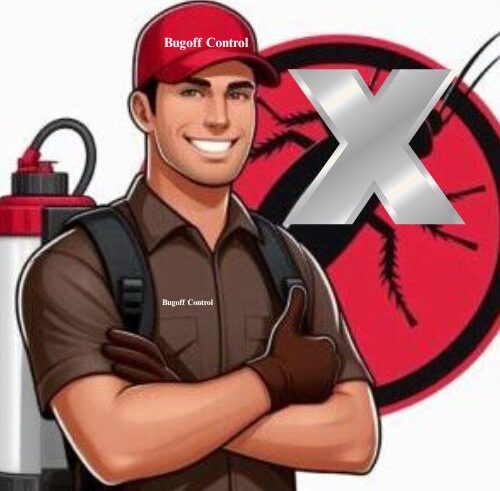


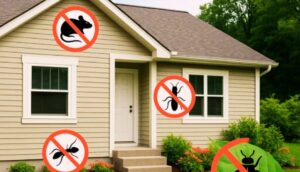
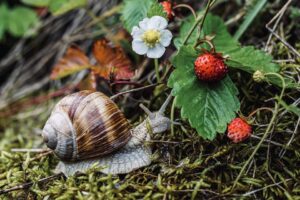
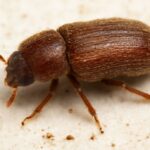
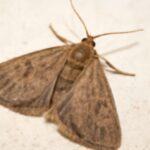
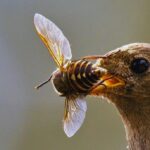
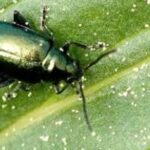

Hi Norman,
This is very helpful really! Thanks for this.
As a civil engineer responsible for managing clients’ projects, I’ve encountered my fair share of challenges, including pest issues. One time, while overseeing a substation project in Oman, the client reported the presence of termites. This was concerning, given the potential damage termites can cause to the electrical equipment. I quickly coordinated with a pest control company to address the issue, and during the process, I learned a lot about how professionals handle pest control. They used specific termiticides and followed strict safety protocols to ensure the termites were eradicated without affecting the surrounding environment.
What surprised me most was the precision with which they applied the treatment. They explained the importance of using the right amount of pesticide and ensuring it doesn’t seep into areas that could cause harm to nearby ecosystems. It was a great learning experience, and now I understand just how essential it is to bring in the experts for these kinds of issues. Have you ever had to deal with a pest problem on-site guys, or do you usually leave it to the professionals?
Hello macfais9
Pests and rodents will eat us out of the house and garden, their goal is survival and they don’t care about that beautiful home or garden we work so hard for. For them, these places are shelters that will also provide food and water for them so we must do whatever we can with the right knowledge in hand to bring control.
I have had to deal with many pest issues on-site, some of these pests were persistent but with much work I was able to bring control. Thanks so much for your kind words and stopping by and commenting.
This is a very detailed guide on the safe and proper use of pesticides. I really appreciate the emphasis on safety for both people and the environment. It’s so important to minimize harm, especially when pesticides can affect water sources and wildlife if misused. The clear breakdown of the dos and don’ts, as well as practical tips on transporting, mixing, and storing pesticides, makes this article easy to follow even for beginners.
Overall, this guide not only helps with pest control but also stresses the importance of responsible pesticide use for the health of everyone involved.
Pesticides should be handled with care whether organic or non-organic pesticides. Safety must always come first and make sure to read and follow the manufacturer’s direction first before applications.
Thanks for this clear and informative guide on how to use pesticides safely and effectively!
Living in Arizona, where pests can be a big challenge, it’s great to have these practical tips for applying pesticides while being mindful of the environment. I also raise animals, so I’m always cautious about the impact of chemicals around them.
Do you have any advice on balancing pest control with keeping pets and wildlife safe? I’ve heard that diatomaceous earth can be effective. Is that even something that can help? I’d love to hear more about natural alternatives that are just as effective.
Angela M. 🙂
I believe that a clean environment is a healthy environment reducing the need to use pesticides. But if pesticides have to be introduced then limit the amount that is used and also make sure and use organic insecticides especially when crop treating. Also before insecticide applications read and follow the manufacturer’s directions on the label for safety and best use.
Diatomaceous Earth is a great and safe product that’s used on many home gardens. This insecticide works by breaking down and drying out the insect’s exoskeleton causing the insect to lose water that leads to dehydration. I hope this helps.
https://bugoffcontrol.com/how-…
Hi Norman,
Thank you for sharing such an informative guide on the safe use of pesticides! I appreciate the emphasis on safety precautions and the need for proper identification before purchasing any pesticide.
One question I have is, what are some effective natural alternatives to chemical pesticides that homeowners can use for common garden pests? I’d love to explore more eco-friendly options:)
Thanks a lot!
Hello Daniella,
Many brands of pesticides offer to control pests but the best approach is the safe approach first and that is to identify the pest that’s present only then can you determine which pesticide to use. However organic pesticides are a safe approach especially when treating crops and even then precaution should be taken when applying these formulations.
Always read, understand, and follow the manufacturer’s directions on the label for safe and effective control. Many homemade remedies can be used for example, a soap and water solution is effective against many soft-bodied insects. A mixture of garlic water, cayenne pepper, and a drop of dish liquid soap will eliminate many soft-bodied insects. Snails and slugs can be controlled by breaking up dried eggshells and sprinkling them through your garden and as eggshells break down will add calcium to the soil. There are so many more home remedies that are alternative to harmful pesticides. I hope this helps
https://bugoffcontrol.com/gard…, https://bugoffcontrol.com/how-…, https://bugoffcontrol.com/natu…https://bugoffcontrol.com/gard…
Hello,
This article offers an eye-opening look at the complexities of pesticide use and the critical importance of safety. It’s alarming to think about the potential consequences of mishandling these substances, both for our health and the environment.
For those eager to adopt a more eco-friendly approach, what innovative organic alternatives to conventional pesticides have you found effective in keeping pests at bay without compromising safety?
There are many brands of organic pesticides that are sold, it’s all a matter of identifying the pest and then purchasing and organic pesticide that has that listed pest.
As a passionate organic gardener, I know the damage pesticides can do. It is so frustrating to see other gardeners abusing pesticides and allowing them to travel into clean environments! This is one of the problems of living in large conurbations; the situation can only worsen as populations grow! I agree that pesticides should be a last resort, but I’ve never had to use them. Companion planting and using organic seeds that are not contaminated always works. However, people generally don’t know much about the natural ways of being on Earth, which is sad! We are spoiling the Earth with our ignorance.
Please continue to educate people about the dangers of pesticides.
I am so happy that I could help, it is always best to go the safe way.
I live in Arizona where we get scorpions. Thank goodness I have only seen 1 in my home the entire time I’ve lived here. I’ve gone out with a black light though- and there are quite a few that show up at night. I don’t like having pests of any kind- so I always get professional pest control. You do provide excellent information in case I ever do my own pest control. I have a dog- and so I can definitely see the importance of what you said about not letting them near it until it completely dries. So – if I wanted to move forward and do my own pest control for scorpions, what product do you recommend? And where should I spray? Thanks!
Hello, and thanks so much for stopping by I am happy to help, this post of Scorpin control both out and indoors should help.
https://bugoffcontrol.com/how-…